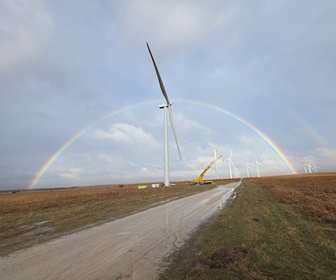The US Department of Energy (DOE) has announced it is investing $4.75 million to establish a new national centre of excellence to accelerate offshore wind energy deployment across the nation.
The Academic Center for Reliability and Resilience of Offshore Wind (ARROW), led by the University of Massachusetts Amherst with approximately 40 partners, will focus on workforce development, targeted research, and partnerships and strategies to embed equity in offshore wind development.
The selected ARROW consortium, funded by DOE’s Wind Energy Technologies Office, will provide interdisciplinary educational opportunities to help advance the next generation of offshore wind workers. ARROW comprises eight universities, three national laboratories, two state-level energy offices, and many industry and stakeholder groups.
To accomplish these goals, ARROW will support three programs:
- ARROW-Empower will focus on an enduring and comprehensive educational scale-up for offshore wind, advancing the education of 1,000 students over the initial 5-year life of the centre.
- ARROW-Innovate will conduct research on infrastructure, atmospheric and ocean conditions, and marine and human ecology to advance the resilience of offshore wind.
- Arrow-Engage will connect with communities across the country and help ensure benefits from offshore wind are spread equitably, while also helping to grow a diverse domestic workforce.
This consortium includes Clemson University, Morgan State University, Johns Hopkins University, Northeastern University, University of Massachusetts Dartmouth, University of Massachusetts Lowell, University of Puerto Rico at Mayagüez, Argonne National Laboratory, National Renewable Energy Laboratory, the Pacific Northwest National Laboratory, the Massachusetts Clean Energy Center, and the Maryland Energy Administration. Over 20 other organisations, including developers, conservation organisations, offshore wind manufacturers, a grid operator, community representatives, trade associations, standards organisations, and others, are also anticipated to serve as partners.









